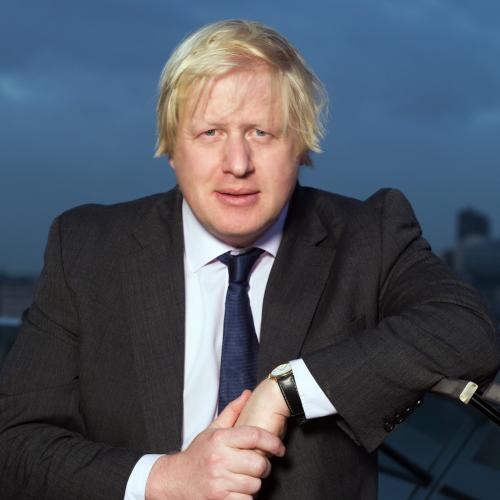Boris Johnson – 2021 Lockdown Statement to the House of Commons
The statement made by Boris Johnson, the Prime Minister, in the House of Commons on 6 January 2021.
Mr Speaker, I share your gratitude to the House of Commons staff for all their efforts and hard work to allow us to meet today in the way that we are. Before I begin my statement, I would like to say that I know the thoughts of the whole House will be with the hon. Member for Cardiff Central (Jo Stevens), who is currently in hospital with covid, and we wish her a full and speedy recovery.
With your permission, Mr Speaker, I will make a statement about the measures we are taking to defeat this new variant of covid-19, protecting our NHS while it carries out the vaccinations that will finally free us from this wretched virus. There is a fundamental difference between the regulations before the House today and the position we have faced at any previous stage, because we now have the vaccines that are our means of escape, and we will use every available second of the lockdown to place this invisible shield around the elderly and the vulnerable.
Already, with Pfizer and Oxford-AstraZeneca combined, we have immunised over 1.1 million people in England and over 1.3 million in the UK. Our NHS is following the plan drawn up by the Joint Committee on Vaccination and Immunisation, which is aimed at saving the most lives in the fastest possible time. Given that the average age of covid fatalities is over 80, it is significant that we have already vaccinated more than 650,000 people in that age group, meaning that within two to three weeks almost one in four of the most vulnerable groups will have a significant degree of immunity. By 15 February, the NHS is committed to offering a vaccination to everyone in the top four priority groups, including older care home residents and staff, everyone over 70, all frontline NHS and care staff and all those who are clinically extremely vulnerable.
In working towards that target, there are already almost 1,000 vaccination centres across the country, including 595 GP-led sites, with a further 180 opening later this week, and 107 hospital sites, with another 100 later this week. Next week we will also have seven vaccination centres opening in places such as sports stadiums and exhibition centres. Pharmacies are already working with GPs to deliver the vaccine in many areas of the country, and I am grateful to Brigadier Prosser, who is leading the efforts of our armed forces in supporting this vaccine roll-out. We have already vaccinated more people in this country than the rest of Europe combined, and we will give the House the maximum possible transparency about our acceleration of this effort, publishing daily updates online from Monday, so that jab by jab hon. Members can scrutinise the progress being made every single day.
Yet as we take this giant leap towards finally overcoming the virus and reclaiming our lives, we have to contend with the new variant, which is between 50% and 70% more contagious. With the old variant, the tiers agreed by the House last month were working. But, alas, this mutation, spreading with frightening ease and speed in spite of the sterling work of the British public, has led to more cases than we have ever seen before—numbers that, alas, cannot be explained away by the meteoric rise in testing. When the Office for National Statistics reports that more than 2% of the population is now infected, and when the number of patients in hospitals in England is now 40% higher than during the first peak in April, it is inescapable that the facts are changing and we must change our response. And so we have no choice but to return to a national lockdown in England, with similar measures being adopted by the devolved Administrations, so that we can control this new variant until we can take the most likely victims out of its path with vaccines.
My right hon. Friend the Secretary of State for Health and Social Care will open the debate on the full regulations shortly, but the key point, I am afraid, is that once again we are instructing everyone to stay at home, leaving only for limited reasons permitted by law, such as to shop for essentials, to work if people absolutely cannot work from home, to exercise, to seek medical assistance such as getting a covid test or to escape injury or harm, including domestic abuse. We are advising the clinically extremely vulnerable to begin shielding again, and, because we must do everything possible to stop the spread of the disease, we have asked schools and colleges to close their doors to all except vulnerable children and those of critical workers.
I do not think the House will be in any doubt about our determination—my determination—to keep schools open, especially primary schools, for as long as possible, because all the evidence shows that school is the best place for our children. Indeed, all the evidence shows that schools are safe and that the risk posed to children by coronavirus is vanishingly small. For most children, the most dangerous part of going to school, even in the midst of a global pandemic, remains, I am afraid, crossing the road in order to get there. But the data showed, and our scientific advisers agreed, that our efforts to contain the spread of this new variant would not be sufficient if schools continued to act as a vector, or potential vector, for spreading the virus between households.
I know the whole House will join me in paying tribute to all the teachers, pupils and parents who are now making the rapid move to remote learning. We will do everything possible to support that process, building on the 560,000 laptops and tablets provided last year, with over 50,000 delivered to schools on Monday and more than 100,000 being delivered in total during the first week of term. We have partnered with some of the UK’s leading mobile operators to provide free mobile data to disadvantaged families to support access to education resources, and I am very grateful to EE, Three, Tesco Mobile, Smarty, Sky Mobile, Virgin Mobile and Vodafone for supporting this offer.
Oak National Academy will continue to provide video lessons, and it is very good news that the BBC is launching the biggest education programme in its history, with both primary and secondary school programmes across its platforms. We recognise it will not be possible or fair for all exams to go ahead this summer as normal, and the Education Secretary will make a statement shortly.
I know many people will ask whether the decision on schools could have been reached sooner, and the answer is that we have been doing everything in our power to keep them open, because children’s education is too vital and their futures too precious to be disrupted until every other avenue, every other option, has been closed off and every other course of action has been taken. That is why schools were the very last thing to close, as I have long promised they would be. When we begin to move out of lockdown, I promise that they will be the very first things to reopen. That moment may come after the February half-term, although we should remain extremely cautious about the timetable ahead.
As was the case last spring, our emergence from the lockdown cocoon will be not a big bang but a gradual unwrapping. That is why the legislation this House will vote on later today runs until 31 March, not because we expect the full national lockdown to continue until then, but to allow a steady, controlled and evidence-led move down through the tiers on a regional basis, carefully and brick by brick, as it were, breaking free of our confinement, but without risking the hard-won gains that our protections have given us.
These restrictions will be kept under continuous review, with a statutory requirement to review every two weeks and a legal obligation to remove them if they are no longer deemed necessary to limit the transmission of the virus. For as long as restrictions are in place we will continue to support everyone affected by them, from the continued provision of free school meals to the £4.6 billion of additional assistance for our retail, hospitality and leisure sectors announced by my right hon. Friend the Chancellor yesterday.
We are in a tough final stretch, made only tougher by the new variant, but this country will come together. The miracle of scientific endeavour, much of it right here in the UK, has given us not only sight of the finish line but a clear route to get there.
After the marathon of last year, we are indeed now in a sprint—a race to vaccinate the vulnerable faster than the virus can reach them, and every needle in every arm makes a difference. As I say, we are already vaccinating faster than every comparable country, and that rate I hope will only increase, but if we are going to win this race for our population, we have to give our army of vaccinators the biggest head start we possibly can and that is why, to do that, we must once again stay at home, protect the NHS and save lives. I commend this statement to the House.


